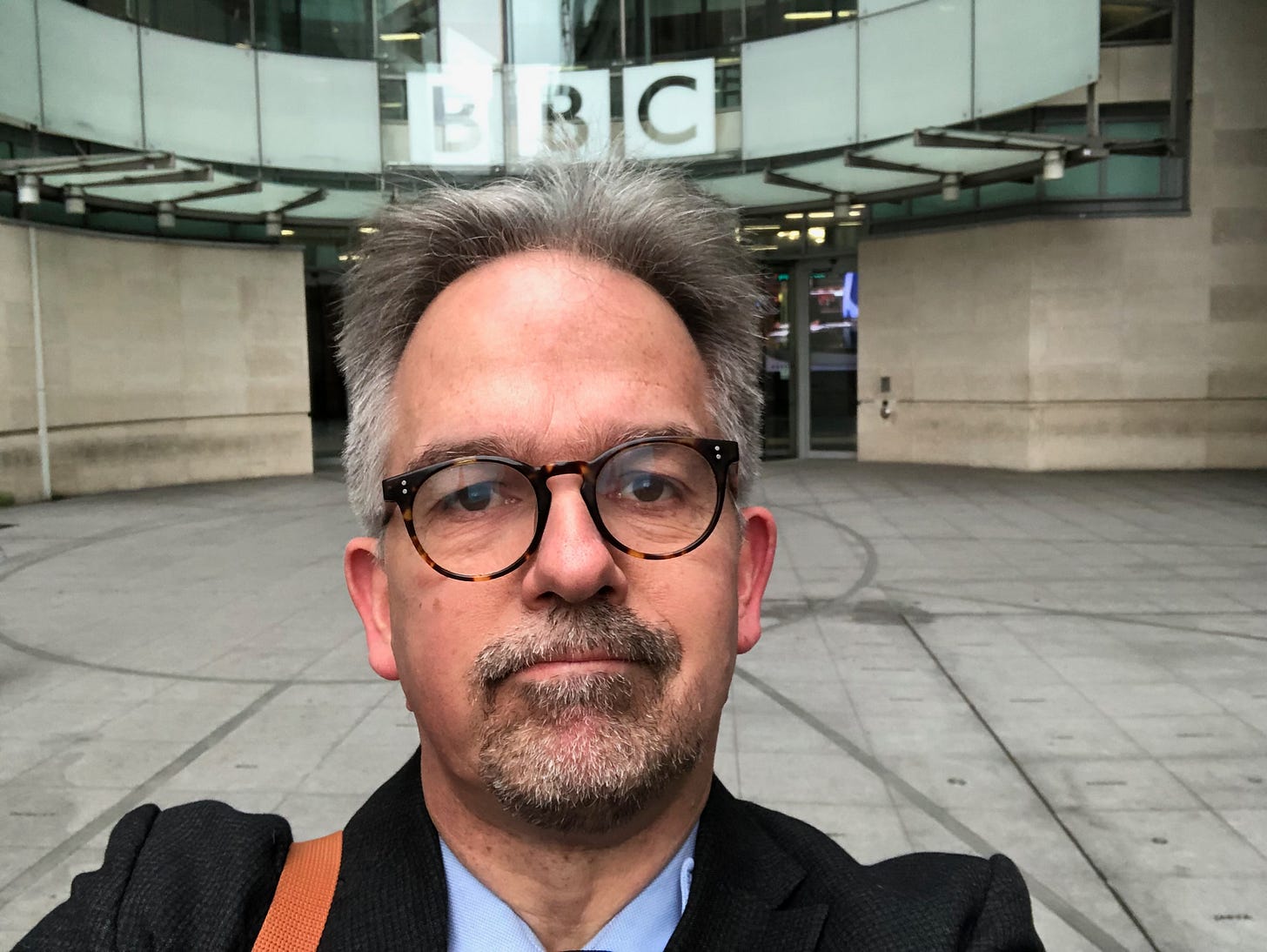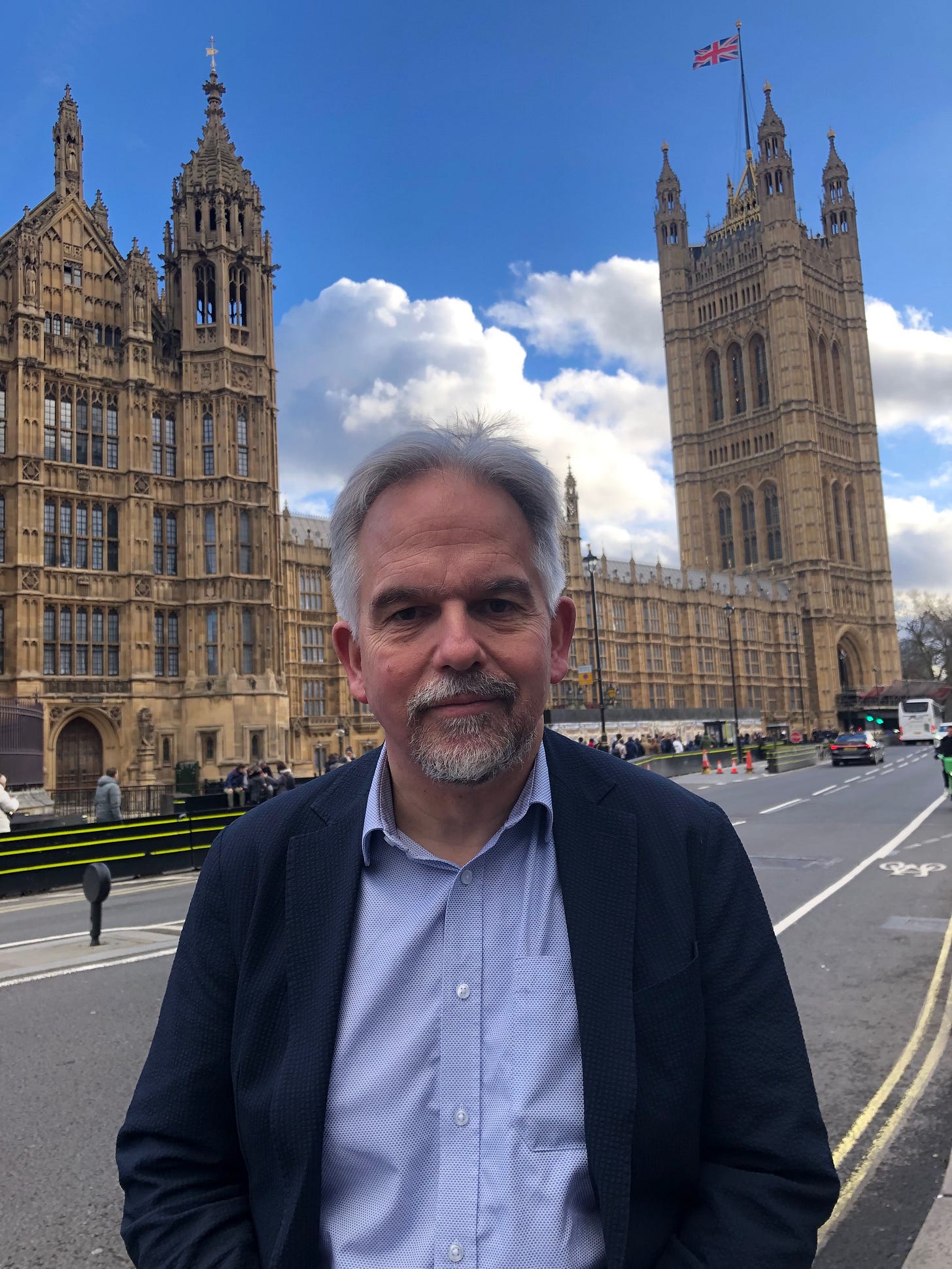I recently took part in a panel discussion on BBC Radio 4 “Inside Health” on Assisted Dying, it was a pre-record that was split into 3 parts-
The first covered eligibility, the second on safeguards, and the last part on the final moments. Quite a tough gig, given that I was up against 2 opponents, Prof Mark Taubert & Prof Katherine Sleeman.
One stated in his evidence to the Leadbeater committee that “coercion from family members is not uncommon in clinical practice”, the other “coercion is not uncommon in clinical practice “in her evidence. Yet neither was able to name any instance where the police had been called over suspected coercion with current treatment withdrawal pathways. That is not to say that coercion is unimportant- it is. It’s just opponents to assisted dying have somewhat over-stretched their hand on this issue. Over 300 million people potentially have access to assisted dying legislation currently, and the World has not come to an end. Why the issue of coercion to opponents of change should be so pertinent in the UK is unclear. Maybe they just do not want to see any change.
A more relevant question is about the drug protocols. In plain English, which drugs get used in assisted deaths? Yet this is something that although the panel discussed was not broadcast by the BBC. I will choose my words carefully as this is a very sensitive issue.
In essence, the BBC like all media organisations avoids discussing the drugs used. The reason for this is clear- no one wants to promote suicide. The Samaritans are clear “providing details of suicide methods has been linked to increases in suicide rates and shown to influence vulnerable people to imitate suicidal behaviour.”
“Inside Health” was fascinating. As part of the preparation, I wrote my first substack, but strangely I also learnt something about myself that I did not know.
One of the major reasons the US uses very different drug protocols in assisted dying from other countries globally is because of human rights activists, like myself, campaigning over the death penalty.
No, really.
In 2011, working with the UK human rights charity, Reprieve, I campaigned and sued the US state of Florida over its lethal injection protocol. In 2012 and 2013, I was an expert advisor to the European Commission over the potential drugs that the US was planning to use. This was part of European measures against torture laid down in Regulation (EC) No 1236/2005 if you are being specific, and central to the mechanisms of torture is coercion. So I perhaps know a little more about coercion and torture than most doctors. Part of this work was thinking what drugs the US executioners might use next- largely by looking at the list of neuromuscular agents and anaesthetics that doctors use.
I was genuinely petrified that if the executioner’s started using a widely available anaesthetic that there would be a risk to US patients not being able to get access to it. This nearly happened in 2013, when 1 US state considered using this drug. The Governor backed away after a threat from the manufacturer, Kabi-Fresnius. At any rate, these efforts drove executions in the US down to a 30 year low.
Interesting though this medical history is, there is a World of difference between execution and assisted dying. The former is state-sponsored killing, the latter is about respecting the autonomy of someone who is terminally ill. This centres on understanding consent in an adult who has mental capacity. Someone like my friend Fabi, or Wayne Hawkins. Last week, the BBC showed a very moving piece on the death of Wayne Hawkins who died “peacefully” via California’s assisted dying legislation.
As part of the preparation for the Inside Health, I spoke to Prof Michael Dooley who developed the Australian protocol last month. He was very clear “transparency” is key, both in his evidence to the Leadbeatercommittee, as well as speaking to myself. He told me how effective their regime was. Speaking to Michael, I soon realised that one of the central drugs to the Australian protocol was one I had worked on, with respect to campaigning over lethal injection.
Loss of consciousness was reported the be in less than 10 minutes in almost 95% of patients and reported to be as quick as 30 seconds and in under 2 minutes in four patients. The majority of patients (62.8%) were reported to have died within less than 30 minutes of swallowing the mixture and 85.9% within one hour.
In his evidence, all patients died after ingestion- the longest to die was in a man who was terminally ill, who had been drinking champagne, and inadvertently took 15 hours to die as he only had only taken ½ the dose of his medication (personal communication from Michael Dooley, as the data was after his report was submitted to the House of Commons) but he was comatose throughout. Is that a complication of the assisted death or a ‘good death” is a matter of opinion? To my mind, it sounds like a good death.
A lot of UK opponents to a change in the law are scare-mongering over “complications” of assisted dying. I have spoken to the actual practitioners and families of those with direct experience show the reality is, in fact, a good death.
Having spent quite a lot of time campaigning about both topics, ie assisted dying and lethal injection. I can confirm that none of the drugs used in US states were on the list of potential drugs that we, at the European Commission, thought were ones that an executioner would use. That said, given that California does not record which drugs are used, it was clear from the BBC report that Wayne Hawkin’s death was “peaceful”. Ultimately in overdose, all drugs can lead to death, but some agents will be infinitely more preferable to utilise in an assisted death than others. I think looking at what other countries outside of the US used if the Leadbeater Bill passes makes sense. We do want to see the UK have the safest possible legislation, and there is no reason why that cannot occur.
The word ‘peaceful’ was the word most used in Prof Dooley’s report from the families who died an assisted death in Australia. It is also the word that my friend Fabi’s partner used after she died in Belgium. Fabi wanted to see the law in the UK change to allow the autonomy that some terminally ill patients so passionately wish. This was exactly the same reason that Wayne Hawkins allowed the BBC to witness his death- he wanted to see the UK change the law.
Lets make Fabi and Wayne’s wish come true, and get the law changed*
*Even if I’ve written over a 1000 words about the drug protocols without naming the drugs. I hope you will understand why I agree with the BBC not to do so.





